Air Force Can’t Find Drone Pilot Volunteers
The Air Force can't find enough people to volunteer to fly remote controlled planes.
The Air Force can’t find enough people to volunteer to fly remote controlled planes.
AFP (“US Air Force Lacks Volunteers To Operate Drones“):
The US Air Force is unable to keep up with a growing demand for pilots capable of operating drones, partly due to a shortage of volunteers, according to a new study.
Despite the importance placed on the burgeoning robotic fleet, drone operators face a lack of opportunities for promotion to higher ranks and the military has failed to identify and cultivate this new category of aviators, Air Force Colonel Bradley Hoagland wrote in the report published for the Brookings Institution think tank.
In 2012, the Air Force had a goal to train 1,129 “traditional” pilots and 150 drone pilots to operate Predator, Reaper and Global Hawk robotic aircraft.
But the Air Force “was not able to meet its RPA (remotely piloted aircraft) training requirements since there were not enough volunteers,” the report said.
As of last year, the Air Force has 1,300 drone pilots, making up about 8.5 percent of the force’s aviators, compared to 3.3 percent four years later.
The fleet of unmanned aircraft includes 152 Predators, 96 Reapers and 23 Global Hawks, which is large enough to fly 61 combat air patrols.
The military measures air power in terms of combat air patrols, or CAPs, which are supposed to provide 24-hour air coverage over a designated area. It typically takes three or four drones to make up a combat air patrol.
But goals for expanding the patrols are increasing “at a faster pace than the AF (Air Force) can train personnel to operate these systems,” the study said.
One of the factors behind the shortfall is a high rate of attrition among the drone operators, which is three times higher than for traditional pilots, it said.
Another factor is the intense tempo of operations for drone missions over the past decade.
The constant drone flights mean operators, unlike their counterparts in other specialities, lack the time for additional education and training to attain a higher rank, undercutting their career prospects, the author wrote.
The problem is reflected in a 13 percent lower promotion rate to the rank of major over the past five years, compared to other military fields.
The fewer number of promotions is also fed by a military culture that still does not fully appreciate the skills of drone pilots, Hoagland said.
I’d argue that Hoagland has it exactly reversed: the problem is that we appreciate the skills too much. It’s simply absurd to require people flying remote controlled airplanes to be qualified pilots, much less eligible for promotion to major. We don’t need field grade officers to do a job that a kid out of high school could do. Millions of people pay good money to play flight simulator games. You’re telling me we can’t find a couple thousand to do it for money, getting to blow up real bad guys?
As I noted a few months back after a report that drone pilots are bored,
The Army has its very lowest level enlisted personnel drive tanks, rocket artillery launchers, and the like. Once promoted to junior NCO rank, they stop driving and start supervising those who do. Similarly, Army helicopters—which are much harder to learn to fly than a fixed wing aircraft—are piloted by warrant officers and very junior commissioned officers. Once you make major, you move on to supervising aviation operations, doing less and less flying as your career progresses. Indeed, those who want to spend their careers flying are better off as warrants rather than commissioned officers.
Yet, the Air Force is paying field grade officers a very handsome salary—and flight pay!—to do something a kid right out of high school could not only do just as well but is likely much more psychologically suited to do. Indeed, I can scarcely conjure someone it makes less sense to assign this banal duty to than a 30-something who has spent a decade learning to fly jets.
To be clear, I’m not denigrating the work RPA pilots do. It takes skill and judgment and saves lives. But it makes no sense to spend hundreds of thousands of dollars to train someone to do an almost completely unrelated task and then make him do something comparatively boring.
Of course, acknowledging that you don’t need to be a pilot or an officer to do this would require a rather stark cultural change in the Air Force.
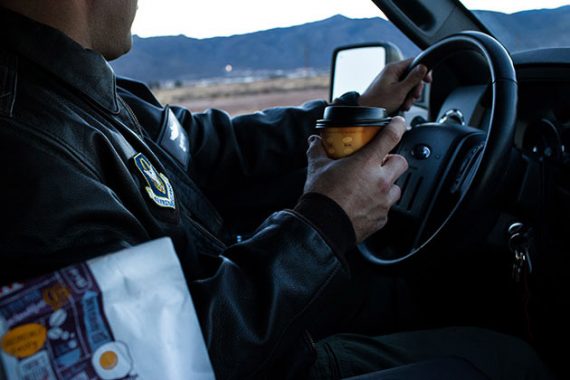

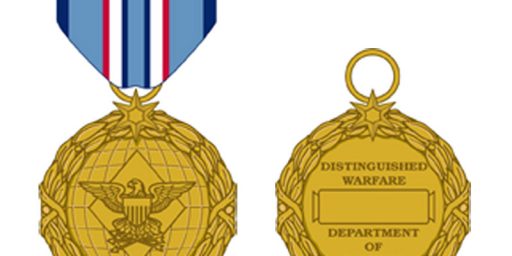
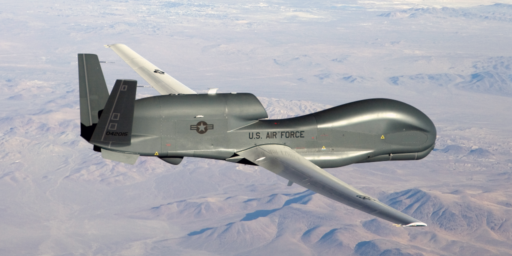
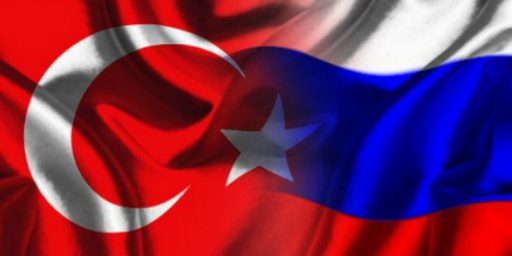
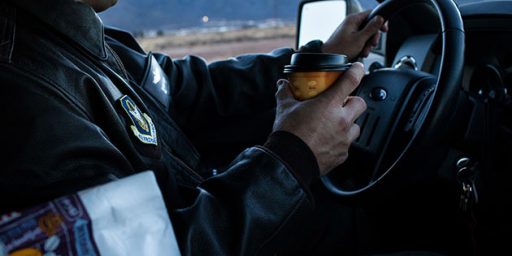
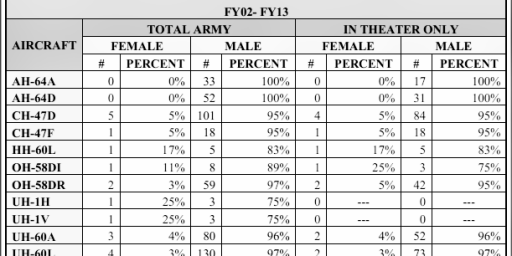
The promotion issue is connected to the “up or out” rule. If you want to make a career our of the military and not get hired on by the next air line asap you need to punch all your tickets in the prescribed order. Not making major when required means you will be separated after 10 – 12 years and not be allowed to finish your 20 years for retirement. So if volunteering for drone duty is seen as not career enhancing you don’t get volunteers. You might be able to switch to senior NCOs flying drone, but now you have to cut 13% of your officer slots no longer needed. And the brass doesn’t like to do that either. Catch 22.
“Of course, acknowledging that you don’t need to be a pilot or an officer to do this would require a rather stark cultural change in the Air Force.”
That’s the real reason; they could use warrant officers, NCO’s or EM’s quite easily.
I think that the AF brass realizes that drones are the wave of the future, and don’t want (what will soon be) the majority of pilots not being commissioned officers.
This is a USAF institutional problem. The USAF is run by pilots for pilots. They have resisted having enlisted or Warrant Officer pilots. Most of the helicopter pilots in the Army are Warrant Officers. They need a restructure of the UAV pilot career field to bring in enlisted and Warrant Officers to do the “flying.”
The promotion potential aside, it’s just human nature. Most pilots I know became pilots because they wanted to fly … not pretend to fly. You’re right about the Army being much smarter on this issue. My next door neighbor has been in the Army for about 12 years. He currently leads a company of young soldiers who fly the new Grey Eagle drone .. essentially the same aircraft as the Predator which the Air Force requires a rated pilot to operate.
Promotion rates in the AF have been pretty high over the last decade (running around 90% to major, 80% to LTC, and 50% to Col). I would expect, as wars wind down, that these will decline. However, the point that drone pilots are not getting the experience and training to support the higher ranks is a valid one. The AF is pretty careerist oriented and to run large bureaucracies, you need skills other than your warfighter ones (though pilots, expecially fighter pilots, seem to think that pilot experence is all they need). DC Loser is correct, there is an institutional bias toward officers as pilots. It would require a real paradigm shift to change that.
Hardly surprising. They’ve been selling romance for three quarters of a century. Flying a drone is more like a factory job.
I think that DC Loser, above, has the right of it. Flying drones is a job that doesn’t require the elite (and romantic) flyboys. It’s a job for ordinary working blokes.
Better yet: end the independent Air Force. Subsume its functions into the Army, Navy, etc.
JJ is correct. My 18yo could fly those things.
In fact, based on the amount of time he spends on the Xbox, that may well be the only thing he’s qualified to do.
The USAF should just put out an app on Xbox and Playstation, and presto! Instant drone pilots!
Two words: teenage boys. You will find no shortage of teenagers willing to spend multiple hours a day in a dark room fixated on a video screen to play a real life shoot ’em up…..
@Dave Schuler:
Couldn’t agree more and a great way to save some money.
1. Most of the Air Force’s combat missions could be done by drones. No need to spend billions on fighter jets and bombers that require pilots, navigators and other personnel. What a culture shock that would be to the U.S.A.F!
2. I’m about to “transition” to civilian life after 24 years in the Army. Need a drone pilot who understands military systems … I’m your “pilot”!
Yes, you do need to be a pilot to do this job. You don’t need the specialized high-performance jet training, but you need to be a pilot. This will be even more true as RPA’s are increasingly allowed to operated in controlled airspace.
And the fact is that you don’t need an officer to do most of the jobs in military at all. The reasons which created the officer-enlisted class structure pretty much do not exist anymore in today’s military.
Also, it’s not just the Air Force. You mention the Army, but the Marines, Navy and Coast Guard all do it the same way as the Air Force with regard to officer pilots. Clearly it’s not simply a matter of Air Force culture.
Greetings:
Now doubt this situation will be improved now that the USAF Academy has a woman in charge.
As long as we are talking about streamlining the armed forces, I’m going to commit the Ultimate Heresy and say that there is no longer a need for a separate Marine Corps, either…
(Up deflector shields!)
I think the title of this piece should be changed to Air Force refuses to allow enlisted and warrant officer pilots–because that’s what it is.
@stonetools:
?
The Commandant of the Marine Corps reports to the Secretary of the Navy, as does the Chief of Naval Operations.
Flying these ought to require a licensed pilot with at least basic airmanship skills. I’m with Andy. A simulation isn’t dynamic or realistic enough to replace the skills learned by maneuvering and navigating a real airplane.
@Dave Schuler:
Yeah, and? What does the Marine Corps do, exactly, that the Army and Navy can’t?
James: Posted a comment and got a message said it was caught by the anti-spam defenses.
@Rafer Janders:
The Marines are a subdepartment of the Navy. It’s right there in the chain of command. A shipborne force with the mission of disembarking from ships and fighting? That’s what the Marines are and that’s a function that’s won’t go away whether they’re called Marines or something else. There’s probably enough PR value in continuing to call them “Marines” to keep them as-is.
@Dave Schuler:
Unfortunately, that wouldn’t solve the overarching problem. One thing the AF does that the Army, Navy, and MC air components don’t do is strategic airlift. It’s about the least sexy thing you can do while still being a pilot, and the AF treats it that way – as the path you take if you couldn’t get a combat cockpit. It’s also far better training/experience for a civilian pilot job, and that doesn’t help in the AF pecking order. That attitude wouldn’t change if the AF went away; if anything, it would get a lot worse. AMC and TRANSCOM are at least 4-star billets a heavy pilot can legitimately aspire to – I don’t think that would continue if the mission was broken apart.
@Andy:
“And the fact is that you don’t need an officer to do most of the jobs in military at all. The reasons which created the officer-enlisted class structure pretty much do not exist anymore in today’s military.”
Interesting thought. The officer/enlisted split is based on the Prussian model where officers were upper class and enlisted were the serfs. In the US, it became more like white collar/blue collar. In today’s Armed Forces, it is far more of a meritocracy and harder to differentiate based on jobs. Why not have a structure more like a police force where you can steadly rise in rank based on your performance? Just thinking out loud.
@Scott: @Andy: I wrote a paper some years back arguing that we should truncate the enlisted ranks at E-6, an Army staff sergeant and equivalent. Promotion to E-7 for all Services is handled by a Service-level selection board. I’d make guys selected for promotion second lieutenants and ensigns. They wouldn’t be able to rise above O-3 without getting a college education, but they could become officers by coming up the ranks.
I’d still allow people to come in as officers out of the academies and ROTC. It makes sense to let those with aptitude and intelligence skip ahead to junior management, just as we do in other sectors. But there shouldn’t be a permanent class divide.
I was going to volunteer…but I’m booked up on the PPACA Death Panels.
@James,
We already have that system in enlisted accession to Officer Candidte Schools. Right now it’s all about self-initiative, with the NCO taking the time to have all the credentials lined up and get all the paperwork done to go before the OCS selection board. Even 30 years ago when I went through Air Force OTS, I had at least 5 or 6 NCO Officer Candidates in my flight of about 20.
We still need Senior NCOs to do the front line management of the enlisted force. It won’t work by pushing that to the E-6s (the experience is not there across the board in your setup), or to the junior company grade officers. Those crusty E-7, 8, 9s are the institutional memory and expertise of the enlisted force, and pretty indisposible IMHO.
During the Civil War the difference between enlisted and an officer was that an officer could read and write. My great-great-grandfather was a captain because he could read and write. No experience required.
By World War II most officers were college grads but college grads were a lot rarer then. Now it’s more like 40% of the population.
@Dave Schuler:
Yes, I am well aware.
That’s what the Marines originally were, but that’s not what they are now. Most Marine operations these days have nothing whatsoever to do with being a shipborne force or with amphibious landings — after all, there isn’t much of a coastline in Iraq, and none in Afghanistan, yet that’s where the Marines have been in action for the last ten years. What the Marines do now, and what they’ve primarily done since the end of WWII in Korea and Vietnam and Kuwait and Iraq and Afghanistan, is land-based ground combat, and that’s purely duplicative of the Army.
@DC Loser: My problem with senior NCOs (and my dad was an Army First Sergeant, an E-8) is that they violate the chain of command. For all intent and purposes, they’re more powerful than junior officers but at the same time subordinate. And a junior officer corps that consisted of at least half up-through-the-ranks guys would be quite different.
@James,
You are correct about the SNCOs and the chain of command. No 2Lt in his or her right mind would ever cross swords with a SNCO unless it’s for good reason. I stayed out of the way of the Chiefs (E-9s) in my first unit because they had the ear of the O-6 and I was barely noticed. But they earned that right, and I was just starting out learing the ropes. I have tremendous respect for them. I had a couple of super SNCOs (E-7s and E-8s) “work” for me in my early career, who taught me the ropes. I know that my unit could not have functioned without them, and I know those guys would not have wanted to be “officers” and be the same status as a brand new butter bar. Look at the Navy’s rituals for someone crossing over into the world of a Chief Petty Officer. It’s a big deal, and rightly so.
@DC Loser: Yup.. My dad made Sergeant First Class (E-7) at the 9 year mark. He became a CID Special Agent at the 14 year mark and had the opportunity to become a Warrant Officer 1. He considered that a demotion and declined. But retiring as a CW3 rather than a 1SG would have been far more lucrative.
But I argue that the fact that being a senior NCO is more prestigious than being a junior officer, while perfectly reasonable, is a sign that the system is screwed up. Having E-6s become 0-1s upon promotion would ultimately elevate both their status and the status of junior officer.s.
Part of my plan was that, instead of 2LTs coming in as platoon leaders “in charge” of an SFC platoon sergeant, they’d come in as platoon leaders under the supervision of an 0-2 platoon commander. Thus, the roles would be reversed: Whether the platoon commander was a 25-year-old out of college or a 30-year-old up through the ranks, they’d have been platoon leaders first. That is, the butter bar would now be the “platoon sergeant’ who would, instead of being trained by his subordinate, would be trained by someone who had just done his job.
@Dave Schuler:
Apart from the fact that the Marines haven’t really done this since World War II, there’s also the fact that most of the large “arrive via ship and disembark to fight” invasions during that war were carried out by the Army, not the Marines. North Africa, Sicily, Italy, the south of France, Normandy and the Philippines were all Army operations, not Marines. You don’t need a specialized Marine Corps for this function.
I am with those who think these guys should be pilots. They dont necessarily need to be fully rated for an F-16, but they should have a basic rating, and they should fly regularly. (I hope the idea about teens is just having fun. Teens sit in dark rooms flying stuff on computers so they can “kill” other teens doing the same. We want people running these things to have some discretion, not a full time urge to find and kill stuff.)
Steve
The Air Force should remain a seperate force. The separation from the Army is what allowed talented airmen to develop air superiority doctrine (an be rewarded with promotion) broader than close air support and troop ferry. The opportunity to develop that doctrine and strategic vision would be non existent in the army becuase that is not the Army’s mission. Therefore there would not be the stick and carrot of promotion to foster the concepts of air superiority.
We’ve developed air dominance to the point that no nation-state is interested in developing a counter force to challege us. A redux of the Army Air Corp would jepordize the intellectual capital needed to sustain and extend that advantage which allows us the ability to fight war for years with ridiculously low amounts of causalities. We’ve enjoyed this advantage for so long we take it for granted. Realisticaly, intellecual advantage and training is the main reasons we own the skies as technology advantage of our gear over say China, Russia is razor then. Eliminating the Air Force, as many flaws as it does have would nevertheless be a grave error in judgment..untill such a time that technology makes flying weapons platforms obsolete. The airplane has not yet gone the way of the tank in military strategy.
@James Joyner: I believe your argument ignorns several human factors of organizational development. First, truncating the enlisted force at the E-6 level stunts the development of troops in their functional specialties. An E-6 is a person that is about mid-way though see-it-all/done-it-all. The E-7 IS that guy. More importantly, although he doen’t outrank the O-1/O-2–he has earned respect and is still viewed by the junior NCOs and below as “one of us” in a way that an officer could never be viewed–including prior enlisted officers. Moreover, as you know, officers and nco view the mission from differnt view points, even under the scenario where by E-6 becomes an O-1, I will always have to train and mentor the senior enlisted person (who is now an E-6 and almost an expert in his specialty) differntly than I would a junior officer for the simple reason that I need different things out of them. I need a junior officer groom to take on an operational view of the unit’s role in the gear box whereas I need the senior enlisted person to excel at operational and strategic views of managment of his particular gear wheel.
As mentioned above, the prior-enlisted officer fits nicely into puzzle as a hybrid if you will having a good portion of clout in both the officer and enlisted corp. I also think the model we have where senior enlisted ncos get to mentor and groom the strategic leadership of tommorow to be an invaluable piece of organizational development where the flow of support resembles an inverted pyramid. Your model, I fear, promotes an upright pyramid.
Granted, the model arose from a caste system of the past but that doesn’t diminish the fact that it still clearly deliniates roles needed in any organization that can’t afford to be overcome by the times. There needs to be people focused on the 10m, 100m, 1000m pictures exclusively and a handful of people that look at the 1st two or 2nd two. An even smaller handful need to see all three. The only change I would make today, in light of the incredible amount of education our senior enlisted force has, is that the pay gap between E-8 and O-3 should be tightened up a bit. I would also like to see promotion to E-7 by board selection across the servies.
Interesting enough, the lesson the Russians learned from us during the Cold War was that they needed a professional NCO corp like ours. In the Soviet military, they had company grade officers doing stuff that our NCOs were doing, since they lacked a professional NCO ladder because the enlisted force was almost all consript. The few NCOs they had were mostly thugs who were a major part of the hazing problem in the Soviet (and Russian) military. The Russians have been talking about professional NCO development for a long time, and I don’t know where they are at the present time.